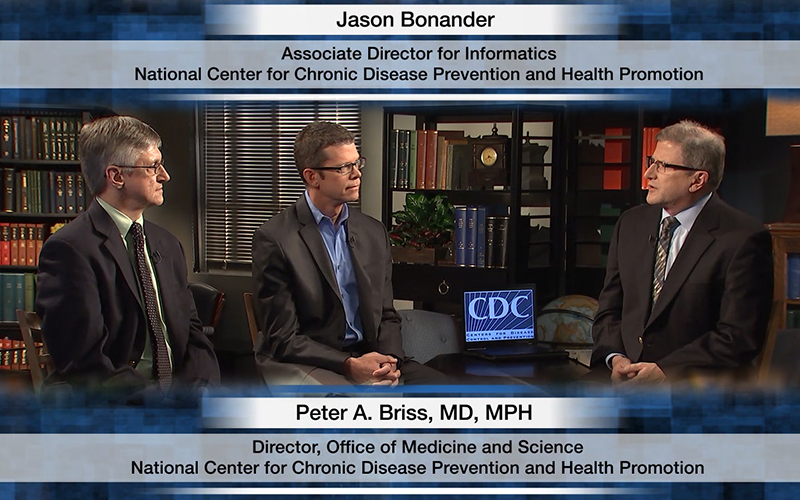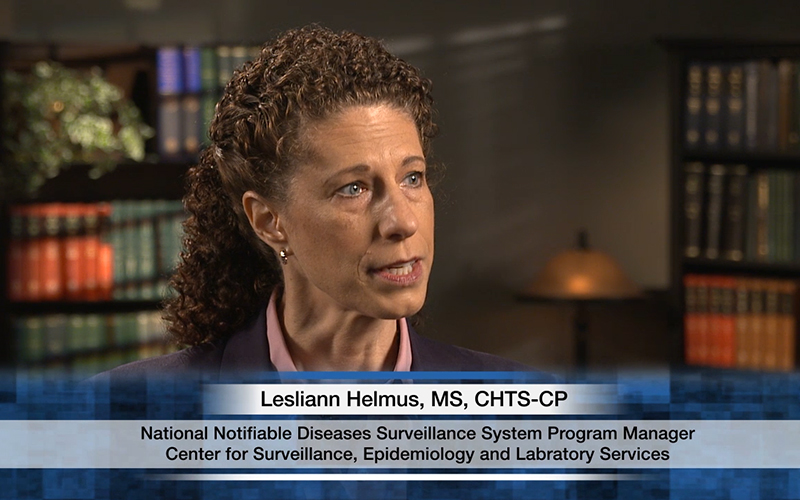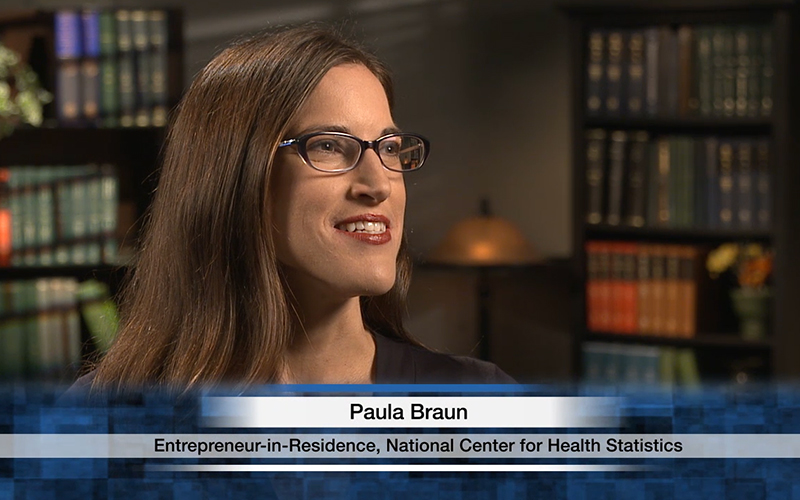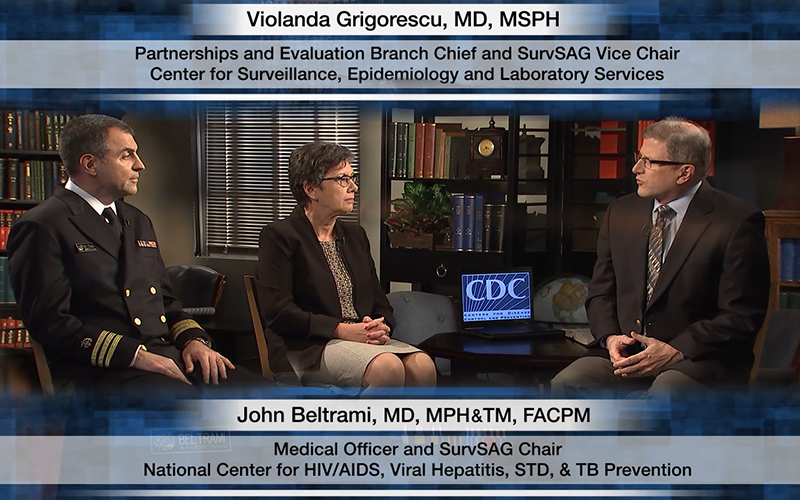Surveillance and Data — Multimedia
Featured here are interviews with experts from around CDC which showcase the work being done to improve surveillance at the local, state and federal levels. Together, we are making surveillance:
- Newer: Modern systems, more efficiency
- Faster: Timely data, more answers
- Smarter: Fewer silos, more connectivity
- Better: Clearer picture, more protection
The Office of Public Health Scientific Services is leading the CDC Surveillance Strategy. In these videos, Dr. Chesley Richards engages experts in discussions about their day-to-day work being done by CDC and its partners to accelerate the Strategy.
Conversations on Public Health Surveillance
Peter Briss, MD, MPH, Jason Bonander, MA
Timely and accurate data at the local level ensures a fuller picture of health, better decision making, and faster public health action.
Keywords: chronic disease, informatics, electronic health record
Lesliann Helmus, MS
Standardized reporting mechanisms save local, state, and federal health organizations time and money while improving health threat detection.
Keywords: notifiable disease, standards, message
Nancy Cornish, MD
Interoperability between hospitals, clinical labs, public health labs, and public health departments ensures quick detection of outbreaks.
Keywords: lab reporting, national surveillance, communication
John Beltrami, MD, MPH&TM, Violanda Grigorescu, MD, MSPH
Surveillance system improvements require partnerships and collaboration across CDC to successfully facilitate progress at the state and local levels.
Keywords: Surveillance Science Advisory Group, CDC Surveillance Strategy
Paula Braun, MSA
Modernizing mortality data requires speed and connectivity which will allow for quicker, more accurate identification of trends.
Keywords: Vital Statistics, death certificates, death registration
Michael F. Iademarco, MD, MPH
Surveillance improves public health response, allowing systems to adapt to current and future public health innovations.
Keywords: technology, healthcare, rapid response
Robert W. Pinner, MD
Utilizing surveillance with information technology provides challenges and opportunities for public health.
Keywords: electronic lab reporting, IT
Michael A. Coletta, MPH
Surveillance innovations can lead to higher efficiency and faster decision-making at the local, state, and national levels.
Keywords: syndromic surveillance, surveillance workforce, electronic data
Hillard Weinstock, MD, MPH
Notifiable disease surveillance from health departments helps the CDC understand disease burden and trends.
Keywords: emerging technology, quality data
Katie Fullerton, MPH
Surveillance provides opportunities to standardize, harmonize, and streamline data to inform public health responses.
Keywords: notifiable disease, outbreak






































No hay comentarios:
Publicar un comentario